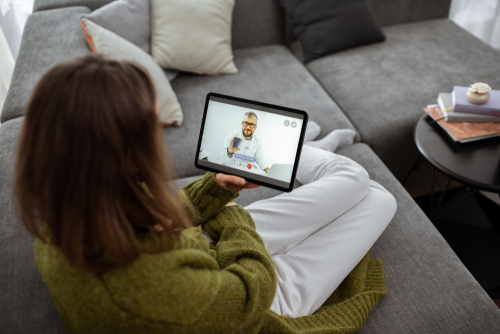Posted by: Associates in Ophthalmology (NJ) in Uncategorized

To provide the best care, medical professionals all over are engaging in “telehealth”. Telehealth is the act of providing medical support with electronic information.
This encourages health education, streamlines administrative duties, and provides long-distance clinical care. Telehealth encompasses various technologies.
This includes the internet, social media, live streaming, video conferences, filing, and wireless communication. Keep reading to learn more about telehealth and why it’s important for patient care!
Telehealth vs. Telemedicine
Often, the terms telehealth and telemedicine are used to mean the same thing. But there is a slight distinction between the two terms.
Telehealth refers to a larger and broader scope of health care terms. Telemedicine is quite a bit narrower in its definition.
For example, telemedicine specifically refers to remote clinical services. This includes diagnosing, evaluating, and, in some cases, treating an issue long-distance.
Telehealth encompasses this as well as non-clinical services. Non-clinical services could include training, administrative meetings, and educational communications.
Why is Telehealth Important?
Healthcare has always been provided in person, either at a doctor’s office or in a person’s home. Either way, there has had to be a face to face meeting of at least two or more people for there to be any progress.
Thanks to the internet, it is now possible to provide many of the services that were once only available in person at any distance. This is less of a “shocking new development” and more of a basic expectation of our healthcare community.
We shouldn’t take it for granted, though, as it has some real benefits to individuals and society as a whole. Telehealth has provided access to rural areas that may have a difficult time obtaining all their healthcare needs.
This helps doctors distribute better healthcare to their community so no one gets left behind. Long travel times to reach a healthcare provider can be enough to make people neglect their medical needs. It can also add unnecessary costs to the whole ordeal.
Telehealth gives providers the ability to diagnose and treat problems faster. This leads to better outcomes for patients.
Prevention is always better than treatment. If you can’t prevent a problem, then early detection is the next most important thing.
Health issues don’t always get better by themselves. In most cases, they only get worse if they get left untreated.
Telehealth is also important in times of crisis when travel isn’t safe. This allows people to stay up to date on their medical needs from the safety of their own homes.
During a public health crisis, it is more important than ever to be informed. The best way to avoid misinformation is to speak with relevant health care professionals directly. That may not always be possible, at least in person.
But you shouldn’t have to put your other health care needs, such as vision, aside. If you have questions about your eye care, we’re here to help!
Contact Associates in Ophthalmology in Livingston, NJ to schedule a telehealth appointment with one of our expert ophthalmologists!

